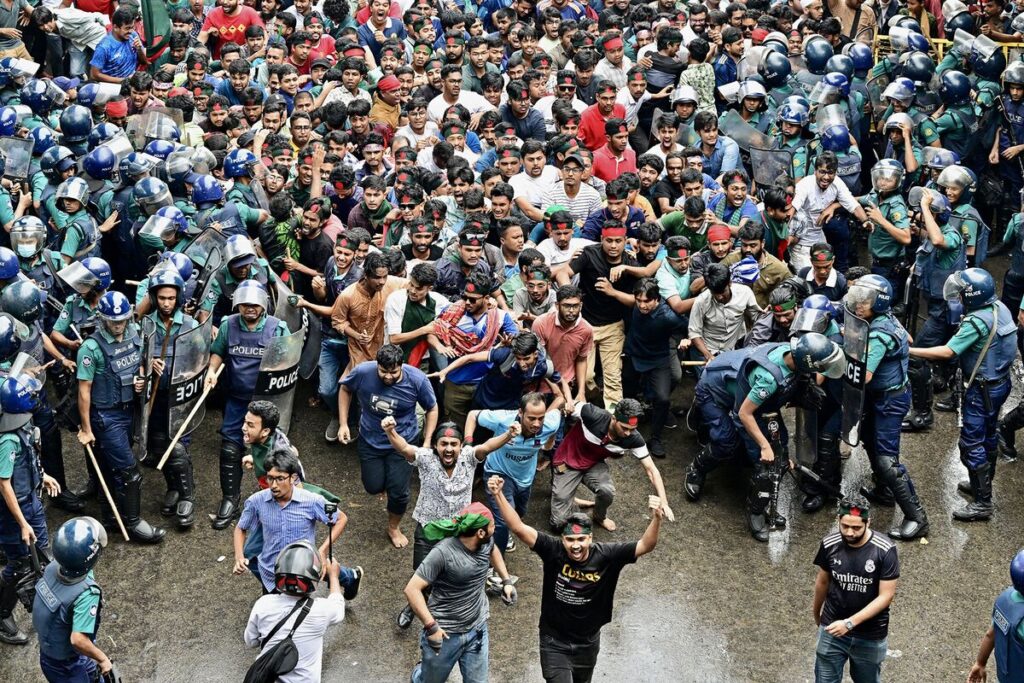July 19, 2024 at 1:34 PM GMT
Weeks of student protests in Bangladesh, demanding the removal of a quota system for government jobs, have escalated into violent clashes with police and counter-protesters, resulting in at least 39 deaths.
Student leaders aimed to shut down transport networks and disrupt the economy to pressure Prime Minister Sheikh Hasina to meet their demands. Police reported that demonstrators set fire to several government buildings, including the state broadcaster. In response, authorities banned public rallies in the capital and deployed paramilitary forces to restore order.
Most of Bangladesh experienced an internet blackout, according to monitoring service NetBlocks. The US embassy in Dhaka was closed, and neighboring India advised its citizens to avoid traveling to Bangladesh.
Here’s what’s driving the country’s most violent protests in six years.
Why are students protesting in Bangladesh?
Students are protesting to overturn a decades-old quota-based hiring system for government jobs, arguing that it is discriminatory. The quota system was suspended by Hasina after mass student protests in 2018. However, last month, Bangladesh’s High Court reinstated the quotas, prompting students to protest again. On July 10, the Supreme Court suspended the lower court’s order for four weeks and urged students to return to classes, but to no avail. Civil service jobs are highly competitive, with more than 400,000 graduates vying for about 3,000 government positions each year, as they are seen as more stable and better paid than private sector jobs.
What is Bangladesh’s jobs quota system? Introduced in 1972, the quota system for jobs in the Bangladesh Civil Service is designed to benefit certain groups: descendants of war veterans, religious and ethnic minorities, people from underrepresented districts, and those with disabilities. The system reserves up to 30% of government jobs for family members of war heroes who fought for independence from Pakistan in 1971. Overall, 56% of government jobs were reserved under various quotas before the system’s suspension. Protesters argue that the quotas exclude new job seekers and are used to reward supporters of Hasina, whose party led the movement for independence from Pakistan.
What has Prime Minister Sheikh Hasina said about the protests? Hasina has criticized the protesters and supports the quota-based hiring system, insisting that freedom fighters should be treated with respect for their sacrifices in the 1971 war. Law and Justice Minister Anisul Huq has stated that the government is ready to hold talks with protest leaders to find a solution and plans to expedite court proceedings.
What do the protests mean for Bangladesh’s economy? A prolonged shutdown of transport networks and businesses, if enforced by the students, could significantly impact the already struggling economy. Bangladesh sought help from the International Monetary Fund in 2022 to rebuild depleted foreign exchange reserves and is currently negotiating a $5 billion loan from China to bolster those reserves. Many Bangladeshis are suffering from a cost-of-living crisis, and the government faces pressure from the IMF to raise interest rates to curb inflation, which has been at 9% since March last year. The protests could divert the government’s focus from efforts to strengthen the fragile economy, though they are unlikely to affect the loan talks with the IMF.

